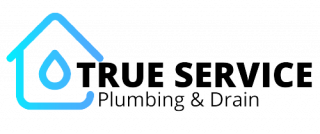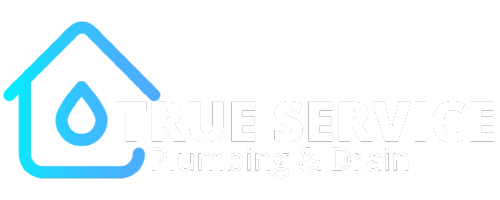Can you flush tampons down the toilet? The answer is a resounding no!
While many individuals believe that flushing tampons is a convenient disposal method, it can lead to significant plumbing issues.
In this post, we’ll explore what happens when you flush a tampon, why it’s a bad idea, and how to dispose of them properly. Let’s dive in!
What Happens When You Flush Tampons down the toilet?
Flushing a tampon might seem harmless, but it’s essential to understand the repercussions.
Tampons are made from absorbent materials designed to expand when wet. When you flush them, they don’t break down like toilet paper. Instead, they can lead to various plumbing problems:
- Clogs and Blockages: Tampons can get stuck in your pipes, causing slow drainage or complete blockages. Over time, these clogs can worsen and require professional intervention.
- Sewer Backups: If a tampon manages to make it past your home’s plumbing but causes a blockage in the municipal sewer system, it could lead to sewer backups. This can create a hazardous situation for you and your neighbors.
- Damage to Septic Systems: For homes using septic systems, flushing tampons can disrupt the balance of the system, leading to potential failures and costly repairs.
Why Flushing Tampons down the toilet is a Bad Idea
Why is this such a significant issue? Here are some critical reasons why you should avoid flushing tampons down the toilet:
- Costly Repairs: Dealing with clogs and plumbing issues can be expensive. A simple flush can lead to severe blockages requiring extensive plumbing repairs. The costs associated with these repairs can quickly add up.
- Environmental Impact: Flushing tampons contributes to environmental pollution. Tampons do not decompose easily, leading to more waste in landfills and waterways. Proper disposal methods can help minimize your environmental footprint.
- Impact on Local Infrastructure: When tampons cause blockages in municipal sewer systems, it can lead to widespread issues for entire communities. This can result in costly repairs and maintenance for local municipalities.
- Health Risks: Clogged sewer lines can lead to unsanitary conditions, creating health risks for you and your family. Sewage backups can pose severe health hazards, including exposure to harmful bacteria and pathogens.
Who is Affected by Plumbing Issues from Flushing Tampons?
You might be wondering, “Who really suffers from the plumbing issues caused by flushing tampons?” The answer is simple: it’s not just you. Here’s a breakdown of who can be affected:
- Homeowners: If you’re a homeowner, clogged pipes can lead to inconveniences and unexpected expenses. It’s crucial to maintain your plumbing system to prevent these issues.
- Renters: In rental properties, plumbing issues can affect tenants. If you’re a renter, it’s essential to communicate with your landlord about any plumbing problems.
- Neighbors: In multi-family homes, a plumbing issue in one unit can affect others. If you live in an apartment or condo, be mindful of what you flush to avoid inconveniencing your neighbors.
It’s essential to address these issues promptly to avoid more severe consequences.
When Should You Call a Plumber?
Knowing when to call a plumber can save you from further damage. If you notice any of the following signs, it’s time to pick up the phone:
- Slow Drains: If water is draining slowly in your sinks, showers, or toilets, it could indicate a blockage.
- Gurgling Sounds: Gurgling noises in your plumbing fixtures can signal that air is trapped due to a blockage.
- Overflowing Toilets: If your toilet overflows when flushed, it’s a clear sign of a significant problem.
Ignoring these warning signs can lead to more severe plumbing issues and costly repairs.
Where Are Tampons Likely to Cause the Most Damage?
The location of your home can influence the severity of plumbing issues caused by flushing tampons. Here’s how:
- Urban Areas: In densely populated cities, municipal sewer systems are often overwhelmed. Flushing tampons can exacerbate these issues, leading to widespread plumbing problems for many households.
- Homes with Septic Systems: For homes using septic systems, flushing tampons can significantly disrupt the balance of bacteria needed for the system to function correctly. This can lead to septic system failures and costly repairs.
Understanding the potential risks associated with your plumbing system can help you make more informed decisions about how you dispose of tampons and other non-flushable items.
If you live in an urban area, particularly in Toronto and the GTA, it’s essential to be mindful of the strain that improper disposal habits can place on municipal systems.
For homeowners with septic systems, tampons can clog pipes leading to the tank, disrupt the bacteria in the tank, and potentially cause the system to back up into your home.
Knowing where you live and how your plumbing system works is crucial for avoiding unnecessary problems.
How to Properly Dispose of Tampons
Now that we’ve established why you cannot flush tampons down the toilet is a bad idea, let’s talk about proper disposal methods. Thankfully, it’s straightforward:
- Wrap in Toilet Paper: After use, wrap the tampon in toilet paper to make the disposal process clean and sanitary.
- Place in a Trash Bin: Dispose of the wrapped tampon in the trash. Ensure that your bathroom has a small waste bin for convenience.
- Consider Eco-Friendly Options: If you’re environmentally conscious, look for tampons or menstrual products that are biodegradable. These can be composted in certain cases, but always check local regulations on composting sanitary products.
Here are a few things you should never flush down the toilet to avoid plumbing disasters:
- Sanitary pads
- Baby wipes (even if they are labeled as “flushable”)
- Cotton balls and swabs
- Dental floss
- Paper towels
- Hair
By adopting these habits, you’ll reduce the risk of clogs, protect your plumbing, and contribute to a healthier environment.
Additionally, you’ll avoid the inconvenience and cost associated with clogged pipes and damaged septic systems.
Conclusion
So, can you flush tampons down the toilet? Absolutely not.
It might seem convenient, but the potential plumbing issues far outweigh the ease of disposal.
From costly repairs to environmental damage, the risks are significant.
Homeowners should take steps to properly dispose of tampons and other non-flushable items to maintain the integrity of their plumbing system.
Toilet-Related Plumbing Issues? True Service Plumbing is Here to Help
At True Service Plumbing, we’re committed to helping homeowners in Toronto and the surrounding GTA keep their plumbing systems in top shape.
Whether you’re dealing with clogged pipes, slow drains, or sewer backups, our team of licensed professionals is ready to provide fast and reliable solutions.
Based in Toronto and the surrounding GTA, we offer expert plumbing services for both residential and commercial properties.
Let us keep your plumbing system flowing smoothly and efficiently, no matter the issue.
Don’t let plumbing problems disrupt your home. Contact True Service Plumbing today for professional assistance and peace of mind!


